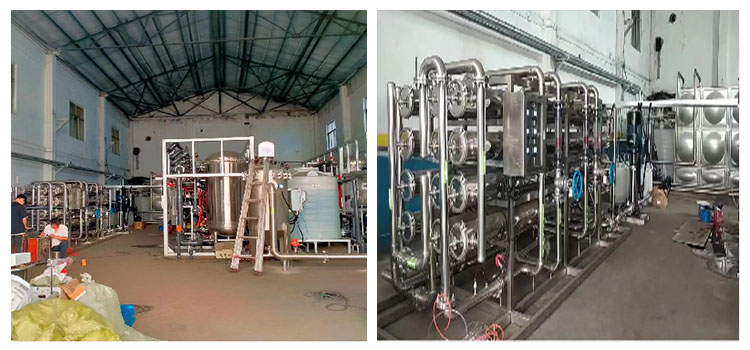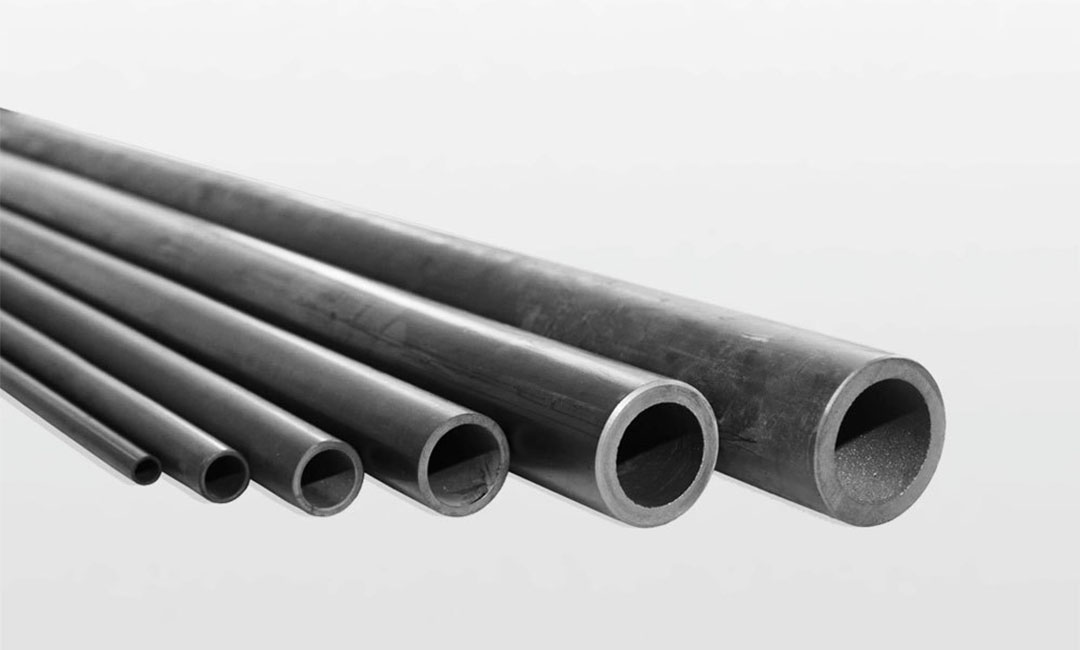Improved Filtration Efficiency
Wastewater treatment is a critical process that ensures the protection of public health and the environment. As populations grow and industrial activities increase, the volume of wastewater generated also rises, posing a significant challenge for treatment facilities. Traditional wastewater treatment methods often rely on conventional filtration technologies, such as sand or ceramic membranes, which may not always provide the desired level of efficiency.
In recent years, there has been a growing interest in the use of silicon carbide tubular membranes for wastewater treatment. These membranes offer several advantages over traditional filtration technologies, including improved filtration efficiency, durability, and resistance to fouling. Silicon carbide is a versatile material that is known for its high mechanical strength, chemical inertness, and thermal stability, making it an ideal choice for wastewater treatment applications.
One of the key benefits of silicon carbide tubular membranes is their enhanced filtration efficiency. These membranes have a unique pore structure that allows for the removal of a wide range of contaminants, including suspended solids, bacteria, viruses, and organic compounds. The high porosity and surface area of silicon carbide membranes enable them to achieve high flux rates and reduce the need for frequent membrane cleaning, resulting in lower operating costs and improved overall system performance.

Furthermore, silicon carbide membranes are highly durable and resistant to fouling, which is a common issue in conventional filtration systems. Fouling occurs when contaminants accumulate on the surface of the membrane, reducing its effectiveness and requiring frequent cleaning or replacement. Silicon carbide membranes are less prone to fouling due to their smooth surface and high chemical resistance, allowing for longer membrane lifespan and reduced maintenance requirements.
In addition to their filtration efficiency and durability, silicon carbide tubular membranes offer other advantages that make them an attractive choice for wastewater treatment facilities. These membranes are compatible with a wide range of water chemistries and operating conditions, making them suitable for various applications, including municipal wastewater treatment, industrial wastewater treatment, and water reuse projects. Silicon carbide membranes can also be easily integrated into existing treatment systems, providing a cost-effective solution for upgrading or expanding treatment capacity.
Overall, the use of silicon carbide tubular membranes in wastewater treatment offers significant benefits in terms of improved filtration efficiency, durability, and resistance to fouling. These membranes have the potential to enhance the performance of treatment facilities, reduce operating costs, and ensure the production of high-quality treated water. As the demand for sustainable water management solutions continues to grow, silicon carbide membranes are poised to play a key role in advancing the efficiency and effectiveness of wastewater treatment processes. By investing in innovative technologies like silicon carbide tubular membranes, wastewater treatment facilities can meet the challenges of treating increasingly complex wastewater streams and contribute to a cleaner and healthier environment for future generations.
Enhanced Chemical Resistance
Silicon carbide tubular membranes have emerged as a promising technology for enhancing wastewater treatment efficiency due to their superior chemical resistance. This enhanced resistance is a key factor in ensuring the longevity and effectiveness of the membranes in harsh wastewater treatment environments.
One of the primary benefits of silicon carbide tubular membranes is their ability to withstand a wide range of chemical compounds commonly found in wastewater. Traditional polymeric membranes are susceptible to degradation when exposed to aggressive chemicals, leading to a decrease in membrane performance and lifespan. In contrast, silicon carbide membranes are highly resistant to a variety of chemicals, including acids, bases, and organic solvents, making them ideal for use in challenging wastewater treatment applications.
The enhanced chemical resistance of silicon carbide tubular membranes is attributed to the unique properties of the material. Silicon carbide is a ceramic material known for its exceptional hardness and durability, making it highly resistant to chemical attack. Additionally, silicon carbide has a high thermal conductivity, allowing for efficient heat transfer during wastewater treatment processes. These properties make silicon carbide an ideal material for use in membrane technology, where chemical resistance and durability are essential.
In wastewater treatment applications, the ability of membranes to maintain their performance over time is crucial for ensuring the efficiency of the treatment process. The chemical resistance of silicon carbide tubular membranes allows them to withstand prolonged exposure to harsh chemicals without compromising their performance. This results in longer membrane lifespan and reduced maintenance costs, making silicon carbide membranes a cost-effective solution for wastewater treatment plants.
Furthermore, the enhanced chemical resistance of silicon carbide tubular membranes enables them to be used in a wide range of wastewater treatment applications. From industrial wastewater treatment to municipal sewage treatment, silicon carbide membranes can effectively remove contaminants and pollutants from water, ensuring compliance with environmental regulations. The versatility of silicon carbide membranes makes them a valuable asset for wastewater treatment facilities looking to improve their treatment processes.
In addition to their chemical resistance, silicon carbide tubular membranes offer other benefits that contribute to enhanced wastewater treatment efficiency. The high mechanical strength of silicon carbide allows for the membranes to withstand high operating pressures, resulting in improved filtration performance. The hydrophilic nature of silicon carbide membranes also promotes fouling resistance, reducing the need for frequent cleaning and maintenance.
Overall, the enhanced chemical resistance of silicon carbide tubular membranes plays a crucial role in enhancing wastewater treatment efficiency. By withstanding harsh chemicals and maintaining their performance over time, silicon carbide membranes offer a reliable and cost-effective solution for wastewater treatment plants. With their superior durability and versatility, silicon carbide membranes are poised to revolutionize the field of wastewater treatment and contribute to a more sustainable future.
Extended Membrane Lifespan
Silicon carbide tubular membranes have been gaining popularity in the field of wastewater treatment due to their superior performance and efficiency compared to traditional membrane materials. One key advantage of silicon carbide tubular membranes is their extended lifespan, which contributes to overall cost savings and improved treatment efficiency.
The durability of silicon carbide tubular membranes is attributed to their high mechanical strength and resistance to harsh chemicals and extreme temperatures. This allows the membranes to withstand the rigors of wastewater treatment processes without degradation or loss of performance over time. As a result, operators can rely on silicon carbide tubular membranes to consistently deliver high-quality treated water without the need for frequent replacements or maintenance.
In addition to their durability, silicon carbide tubular membranes also exhibit excellent fouling resistance. Fouling, or the accumulation of contaminants on the membrane surface, is a common issue in membrane filtration systems that can reduce treatment efficiency and increase operating costs. Silicon carbide tubular membranes are designed to minimize fouling by preventing the adhesion of particles and organic matter onto the membrane surface. This not only improves the overall performance of the membrane but also extends its lifespan by reducing the frequency of cleaning and maintenance cycles.
Furthermore, the unique structure of silicon carbide tubular membranes allows for efficient backwashing and cleaning procedures, which help to maintain optimal membrane performance over time. The tubular design of these membranes enables thorough cleaning of the membrane surface, ensuring that any accumulated fouling or debris is effectively removed. This not only enhances treatment efficiency but also prolongs the lifespan of the membrane by preventing irreversible fouling or damage.

Overall, the extended lifespan of silicon carbide tubular membranes offers significant benefits to wastewater treatment plants in terms of cost savings, operational efficiency, and environmental sustainability. By investing in these advanced membrane materials, operators can improve the overall performance of their treatment systems while reducing the need for frequent replacements and maintenance. This not only lowers operating costs but also minimizes downtime and ensures consistent compliance with regulatory standards.
In conclusion, silicon carbide tubular membranes are a valuable asset for wastewater treatment plants looking to enhance their treatment efficiency and reliability. The extended lifespan of these membranes, coupled with their superior fouling resistance and cleaning capabilities, make them an ideal choice for demanding wastewater treatment applications. By incorporating silicon carbide tubular membranes into their treatment systems, operators can achieve optimal performance, cost savings, and environmental benefits in the long run.

